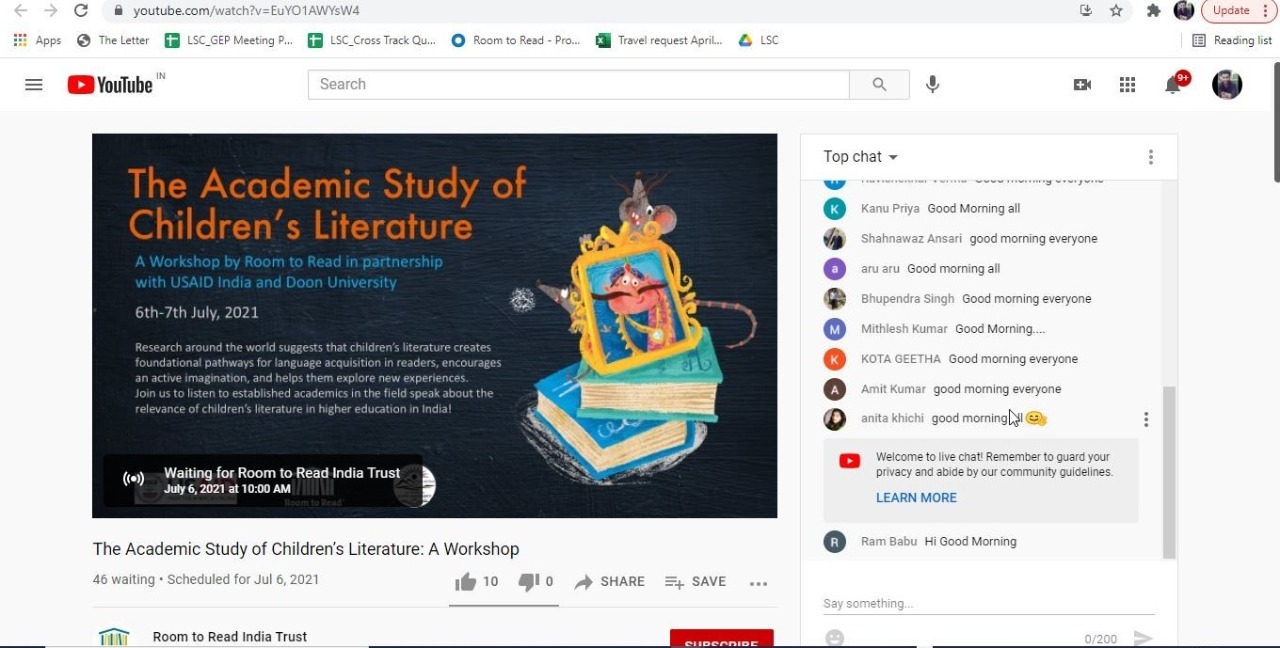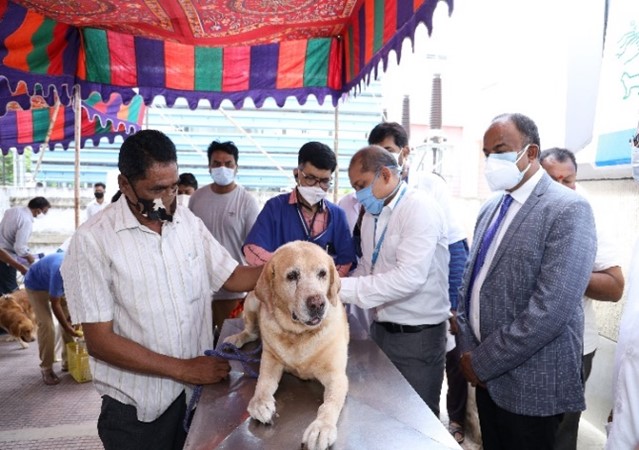
Research around the world suggests that children’s literature creates foundational pathways for language acquisition in readers, encourages an active imagination, and helps them explore new experiences. There is a need to explore the relevance of children’s literature in higher education in India. We strive to explore some interesting questions that come up around the subject of the formal study of children’s literature.
A two daywebinar was organized by the Room to Read in partnership Doon University and USAID to find possible ways to offer windows of insight into the various aspects of the field of children’s literature.This workshopaim to offer brief windows of insight into the various aspects of the field of children’s literature, and why reading and studying children’s books, especially in the Indian context, has value.
The webinar was moderated by the Dr. Richa Joshi, Assistant Professor, and In charge, English Department, Doon University and Room to Read’s State head Pushplata Rawat. The day one was opened by the remarkable key note speaker Vice Chancellor of Doon University Surekha Dangwal. While talking on Children’s literature she has emphasized on collating regional attitude and culture, folklore into children literature which value added the local custom while enriching the literature of children.
She said “I think a good literature will provide a quality discussion and dissemination of information among the children and also it is important to transmit the stories from one society to other society through grandparents”. On talking on children literature she said it is in the roots of literature to provide different viewpoints and helped in learning own heritage and developing positive attitude towards the culture. She talked about the various aspects of stereotypes a literature contains which sometime impacts children with prejudices for certain societies and it needs to be rectified through proper supervision. She has also praised the work done by Room to Read in expending and creating content for children and the contribution in literacy field.
Alisha Berger, Global publisher from Room to Read in her inaugural note said “ I always love to talk about Children literature as it helps us bringing together”. Speaking on children literature she focused on the concept, fantasies, fictional, creativity which requires blending the children’s literature with wide language and cultural significance.
She said a book from the point of view of children depends on various factor of supply and demand, whereas supply is depends upon creativity and illustrations; on the other hand demand needs a government support to disseminate them through libraries. On the further collaboration with Doon University she thanked Vice Chancellor on taking part in this webinar and look forward to create courses in collaboration for the university.
The webinar was divided in two sessions where first session was conducted by Dr. Anto Thomas, Associate Professor, St. Thomas College on the role of children’s literature in higher education. While speaking he said “Children’s literature has emerged as a diverse knowledge center and defining it in a certain way is not an easy task”. He said there cannot be a good children literature without a real child and compare to western children literature India should take it more seriously in developing the content for it.
While talking in the second session Usha Mudignati, Professor from Ambedkar University she asked masses not to divide adults and children in various categories of age and adulthood. There should be a focus on physiological intent of the children and parents should become the guiding force to choose right books for their children.
She said “childhood study is important from their perspective and children do acquire and observe their surrounding in terms of language, culture, social values which somewhere cultivate the children’s mind to develop and follow though adult literature as well.
At the end of the webinar Dr. Richa Joshi from Doon University gave an overview and tone setting lecture on children’s literature and quote the facts that half of the children books published in India appear in English, while only 7% of children speak English. The second day of the workshop webinar will focus on the early literacy and children’s literature in digital world.


.jpg)